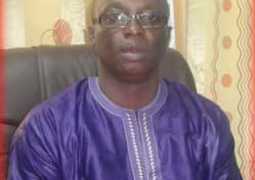Stakeholders
within the North Bank Region Thursday convened at Kerewan for a regional
capitalization seminar of the PRGD–NBR Project beneficiaries.
The
purpose was to review the regional programme for sustainable land management
and adaptation to climate change in the Sahel and West Africa, PRGDT-NBR
project.
The
project, which was for 27 months, has come to its terminal activity
implementation, and the stakeholders meeting was geared towards evaluating its
activities’ success, shortfalls, and take stock of achievements, as well as
lessons learnt for incorporation into future projects.
In
delivering a statement, Kebba N. Sonko, PRGDT-NBR project coordinator, said it
was their happiest moment as a private institution (Emanic) and citizens of
this great nation, The Gambia, to again align themselves with the Government of
The Gambia in her quest for the private sector to be positively involved in
national initiatives for scarce resource management and development.
“Our
commitment to community engagement on Sustainable Land Management is not an
accident,” Mr Sonko emphasised.
The
vulnerability of people to Climate Change Adaptation in the Sahel and West
Africa, particularly in the North Bank Region of The Gambia, is their concern,
he added.
He
stated that with partnership between communities, donors and the private sector,
the ideals of Vision 2020 could be more easily be achieved.
“It
is our hope that even though the project has ended, the physical
infrastructures and systems established by it will be sustained by the
communities for long into the future, and the ultimate results will be a
transformation in land maintenance and improved agricultural production and
productivity,” he added.
This project was successfully executed by
stakeholders taking a leading role in its planning and implementation, under
the distance supervision and funding from CILSS, he said.
However,
their cooperation and willingness to achieve the goal and objectives of the
project was the one most important contribution that led them where they are
now, with smiling faces.
“We
can be proud with heads held high that almost all the project components - be
it environmental, technological, economic, social and governance - have been
achieved to a very high degree.”
This
research result of project implementation in NBR has shown that the people are
cooperative and ready to support themselves for a good life.
“Our
purpose is to take stock of what we have done, how we have done it and the
mistakes and critical success factors responsible for our celebrated success.
“Most
assuring in the NBR project is the support provided by CILSS in strengthening
the decentralisation process in our communities. The contribution through facilitation
and policy guidance by the various government ministries and other institutions
and regional authorities was also invaluable,” Mr Sonko further stated.
The
PRGDT NBR had a great desire and was committed to implementation of a good
number of activities in the villages and districts.
He
said after the implementation of this project, its continuity would be taken
over by their host institutional partner, the Department of Forestry, and
themselves.
In
any case, building the local capacity in project ownership and management
remains a priority at the community-level.
“We,
therefore, urge all of us to actively participate in the sustainability of the
activities implemented in the project.”
The
Emanic initiative has been applauded by the communities in NBR, since it has
contributed in giving a boost to the economy of the region.
“We
believe that our action has been in the right direction for it supports
grassroots’ empowerment. This we believe is desired by our government and the
communities at large.
“We
thank the Gambia government and the people for creating this unique moment of
peace and tranquillity in the implementation of this PRGDT NBR project,” he
added.


